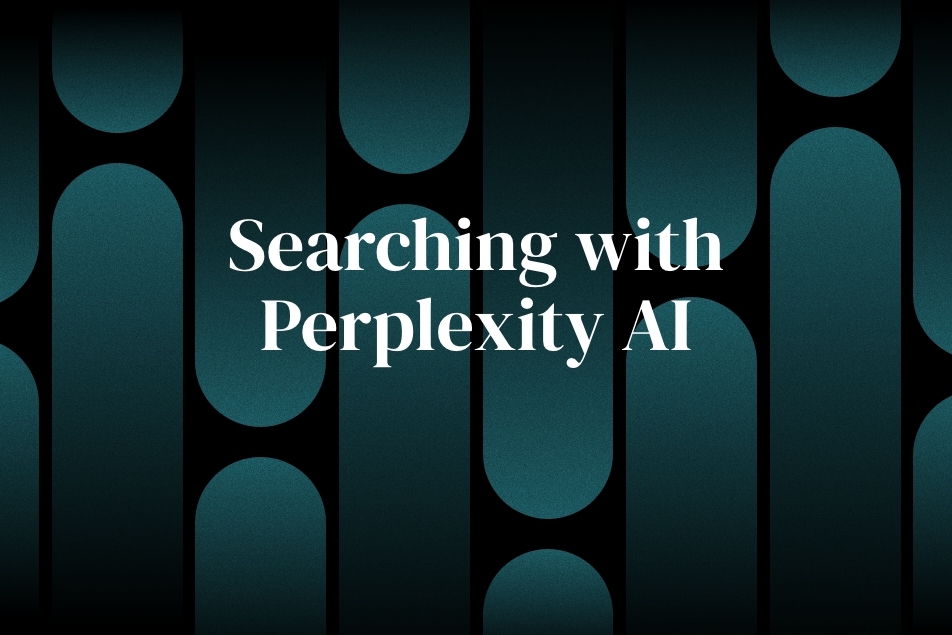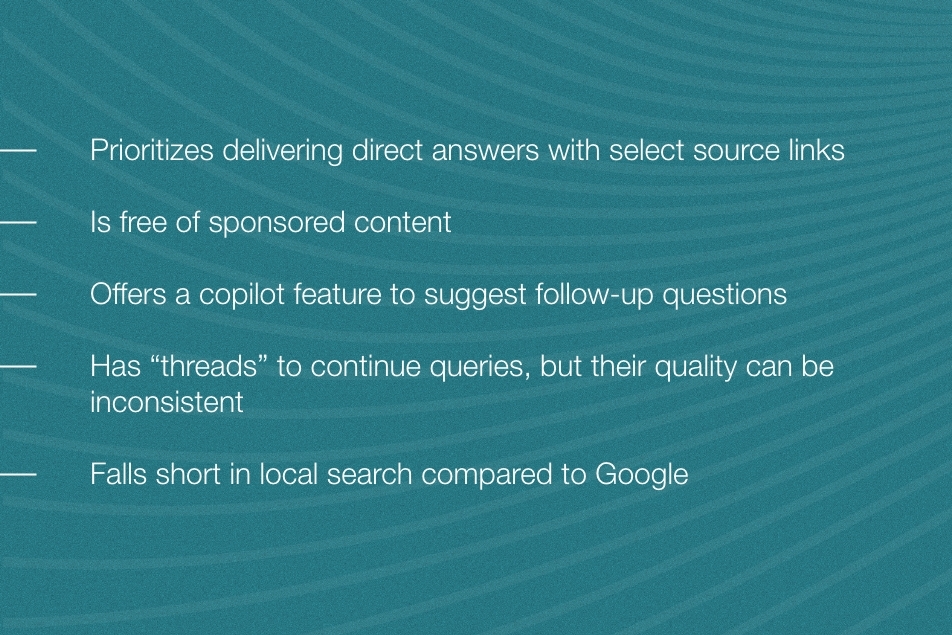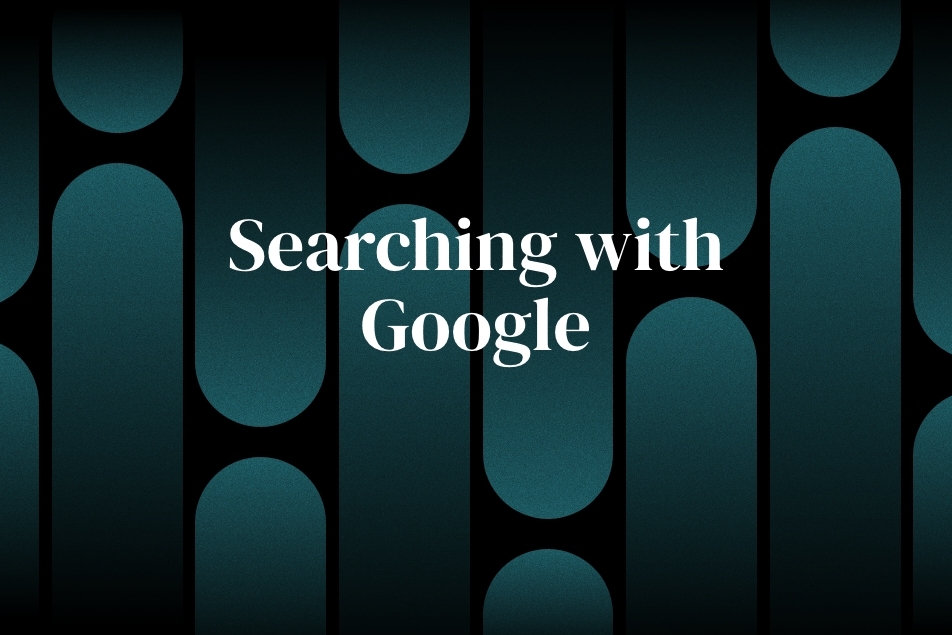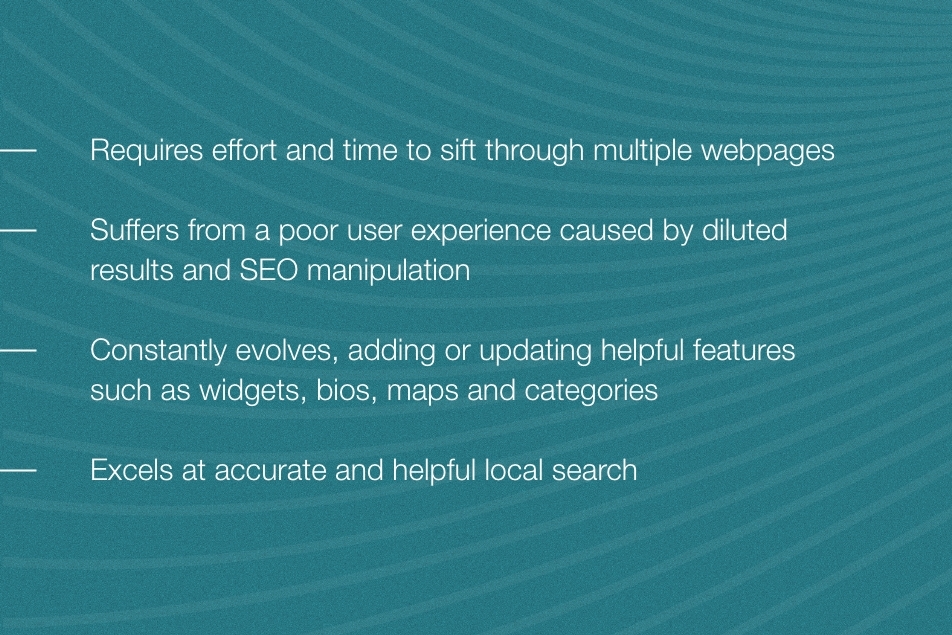Industry Trends
Search

Written By
Wray Ward
The speedy evolution of artificial intelligence is changing how we interact with technology, and it’s already affecting how we search for information online.
AI search startup Perplexity has staked a claim on natural language search — search results that provide answers in simple, plain language instead of a list of links. Based on recent news reports about Perplexity raising over $70 million, including investments from Amazon founder Jeff Besos and microchip maker Nvidia, it’s clear that some technology thought leaders also see its potential.
In the fast-moving world of AI chatbot releases, Perplexity caught my eye as a direct challenge to Google, which hastily launched its own AI chatbot called Gemini (formerly known as Bard) last year and has been under fire recently for low-quality search results. But is Perplexity just another contestant in the race to lead the AI landscape, or does it warrant brands’ close attention? What should marketers be doing now to stay ahead of the pack?
Let’s take a closer look.
What is Perplexity AI?
Perplexity touts itself as an answer engine, countering Google’s ubiquity as the most-used search engine. Instead of providing a list of sponsored results and organic links for the user to sift through, Perplexity uses two online large language models to synthesize an answer sourced live from the internet. It also provides links to the sites it used to create the answer.
How does Perplexity AI work?
Perplexity is AI-powered, but instead of focusing on conversations like ChatGPT does, it specializes in search capabilities. Furthermore, it’s designed to avoid the common AI problems that made headlines in 2023 (it’s hard to forget ChatGPT confessing to an alternate identity and trying to get a journalist to divorce his wife). To solve hallucination problems and provide more accurate answers, Perplexity focuses on:
Continually scanning the internet to stay updated with the latest information
Checking answers across multiple sources to avoid hallucinated responses
Combining the conversational nature of LLMs with greater accuracy and reliability
Perplexity AI vs. Google Search
Google results have become increasingly diluted, forcing users to work hard to find a reliable information source. This problem is compounded by low-quality content that manipulates SEO just to rank higher on the search engine results page.
Perplexity aims to streamline the user experience by synthesizing a single answer. It shows its work by offering a handful of sources with the generated answer. For now, the quality of its answers is inconsistent. At its best, Perplexity can be a time-saver for users learning a new topic.
And, while this doesn’t signal the end of Google, it pressures legacy tech giants to evolve.
Searching with Perplexity AI
Prioritizes delivering direct answers with select source links
Is free of sponsored content
Offers a copilot feature to suggest follow-up questions
Has “threads” to continue queries, but their quality can be inconsistent
Falls short in local search compared to Google
Searching with Google
Requires effort and time to sift through multiple webpages
Suffers from a poor user experience caused by diluted results and SEO manipulation
Constantly evolves, adding or updating helpful features such as widgets, bios, maps and categories
Excels at accurate and helpful local search






